In today’s volatile trade landscape, the smart card industry finds itself at the center of global policy changes, evolving tariff regimes and increased enforcement scrutiny. As part of the International Card Manufacturers Association (ICMA) EXPO, Jonathan M. Zielinski, Partner, Cassidy Levy Kent (USA) LLP, had the opportunity to brief members on the latest trade actions impacting smart cards and their components—and what companies should be doing now to stay ahead.
Smart Cards in the Trade Crosshairs
Smart cards are more than just plastic—they are complex products embedded with semiconductors, software and secure data capabilities. These components, especially semiconductors, are now the focus of sweeping trade actions under multiple U.S. authorities, including Sections 232, 301, and the International Emergency Economic Powers Act (IEEPA).
Several recent and proposed trade measures will have a direct impact on the import, export and manufacture of smart cards:
Section 301 tariffs on China—originally aimed at intellectual property violations—now extend to various electronics and could increase.
IEEPA tariffs target fentanyl supply chains from Mexico, Canada and China and are the basis of the reciprocal tariffs covering most goods from the rest of the world.
Section 232 investigations are expanding beyond steel and aluminum into semiconductors, semiconductor manufacturing equipment, goods that incorporate semiconductors, copper and related technologies—key components in smart cards.
The result? A highly fluid and unpredictable environment for any company sourcing or producing smart card components across borders.
What’s Changing—and Why It Matters
The 2025 administration brought an aggressive trade agenda, with few procedural hurdles and a unified approach to tariffs. Unlike previous years, we’re now seeing a more coordinated strategy that links national security concerns with economic goals—reshoring semiconductor production and other manufacturing being a central theme.
Key developments affecting smart card production and distribution include:
A new Section 232 investigation on semiconductors, launched in April 2025, that may lead to fresh tariffs by early 2026.
Expanded enforcement actions under IEEPA and Section 301, targeting electronics and tech hardware (many of which are used in smart card production).
Stricter rules of origin and valuation, which could impact how the country of origin is assigned to cards based on where the chip or software originates.
These actions aren’t theoretical—they’re already having real consequences for global supply chains, production costs and compliance requirements in the smart card industry.
What Smart Card Manufacturers Should Do Now
Whether you’re a foreign-based smart card manufacturer, a U.S. importer or a domestic producer, there are proactive steps you should take immediately to minimize exposure and leverage potential opportunities:
1. Review Your Semiconductor Supply Chain
The country of origin for your semiconductor may dictate the tariff your card will face. If you’re sourcing chips from China or assembling in locations affected by reciprocal tariffs, you could face duty rates ranging from 10% to 125%.
Consider:
Switching production or sourcing to United States–Mexico–Canada Agreement (USMCA)-eligible countries
Restructuring contracts to optimize for customs valuation
Analyzing where the card’s “essence” (e.g., the chip) is imparted, for country-of-origin classification
2. Mitigate Duties with Legal Strategies
There are lawful ways to reduce the duty burden:
Use the “first sale rule” to base duties on an earlier, lower-priced transaction
Utilize Free Trade Zones (FTZs) or the Duty Drawback program
Leverage USMCA or other FTAs when eligible
Explore transfer pricing and permissible deductions that allow for reduced customs value
3. Strengthen Compliance Systems
With enforcement on the rise, having airtight documentation is critical. Customs penalties can be retroactive up to six years—and they can be severe.
Ensure you’re covering the basics:
Accurate product classification
Proper valuation
Verified country of origin
Compliant marking and labeling
Documenting your compliance efforts with the help of a qualified Customs attorney can help protect against costly penalties and demonstrate “reasonable care.”
4. Plan for Export Controls
If you’re a U.S.-based smart card manufacturer, remember: your product might be regulated not just as a physical good, but as technology.
Software installed on smart cards may be subject to export controls.
The data itself (especially for authentication or financial use) may trigger compliance obligations.
Some cards may be classified as “dual-use” technology, requiring a license even if the product seems harmless.
Add to this a growing sanctions regime (targeting countries like Iran, North Korea and Syria), and it’s clear that exporting smart cards or components is not as simple as it once was.
Are There Opportunities for U.S. Manufacturers?
Yes—and ICMA members should be watching closely.
If foreign-made smart cards or components are being sold in the United States below fair value or are harming the domestic industry, antidumping cases may be appropriate.
Antidumping duties are meant to level the playing field. As import trends and pricing patterns evolve, U.S. manufacturers are tracking the data—and preparing to take action if needed.
If you’re seeing consistent pricing pressure from low-cost foreign imports, you may have grounds to petition for trade remedies.
What’s Next?
This trade environment is dynamic. Tariff lists can change overnight, enforcement actions are increasing and investigations into critical technologies like semiconductors and smart cards are becoming more frequent.
Here’s how to stay ahead:
Monitor the Section 232 semiconductor investigation—comments were due May 7, and a final report is expected by December.
Audit your supply chain to identify vulnerabilities before tariffs hit.
Engage Customs counsel to proactively manage compliance and explore legal strategies to minimize exposure.
Stay informed through ICMA updates and trade policy briefings.
If you need support navigating these challenges or have questions specific to your product or supply chain, reach out to Zielinski at 202-787-5507 or jzielinski@cassidylevy.com.
Trade is shifting—are you ready?
Why ICMA Membership Matters
As ICMA celebrates 35 years in 2025, the association remains committed to supporting the card manufacturing industry by providing members with the tools they need to thrive.
Beyond marketing solutions, ICMA also offers valuable educational opportunities, including Advanced Card Education (ACE) training, and the Card Manufacturing & Personalization EXPO, the association’s largest event.
By participating in ICMA’s many programs, members gain the ability to shape the future of the industry while enhancing their brand’s presence across multiple channels.
Whether it’s contributing articles to Card Manufacturing, presenting a webinar or attending a high-profile industry event, ICMA membership offers unparalleled opportunities to network, learn and grow.
For card industry professionals looking to stay ahead in 2025, leveraging the marketing resources and industry recognition offered by ICMA is a proven strategy for success.
Learn more about the benefits of ICMA membership.
